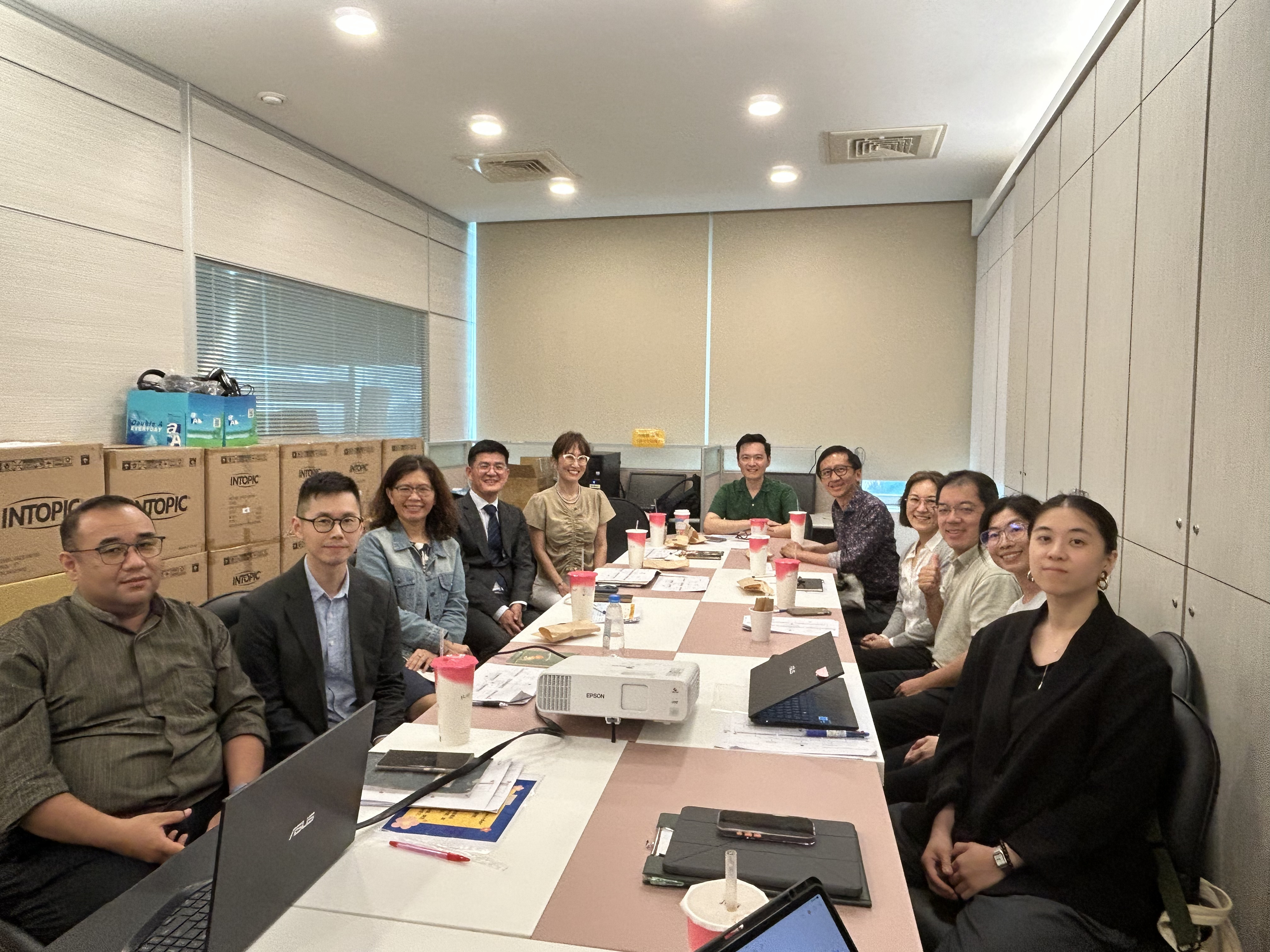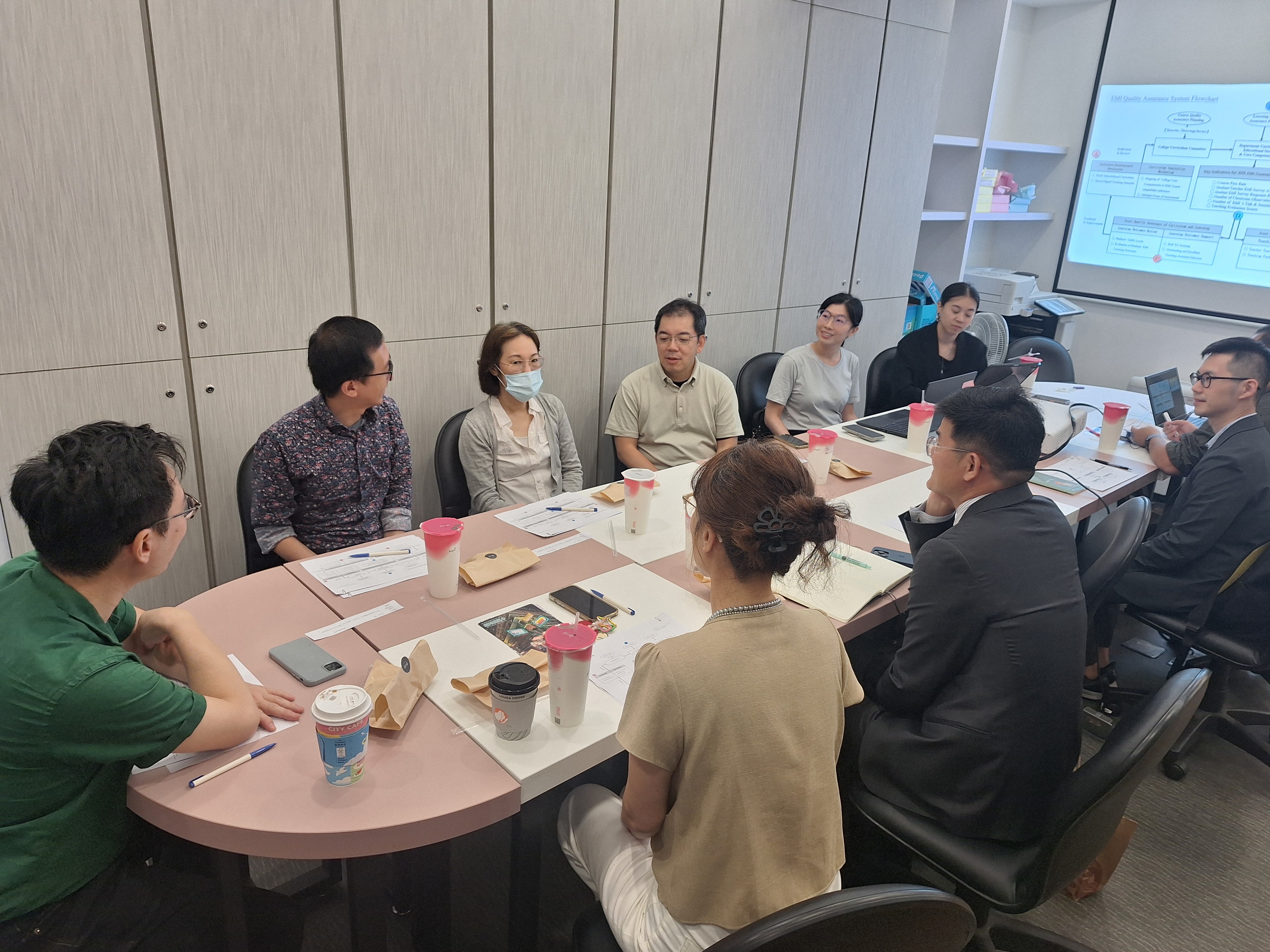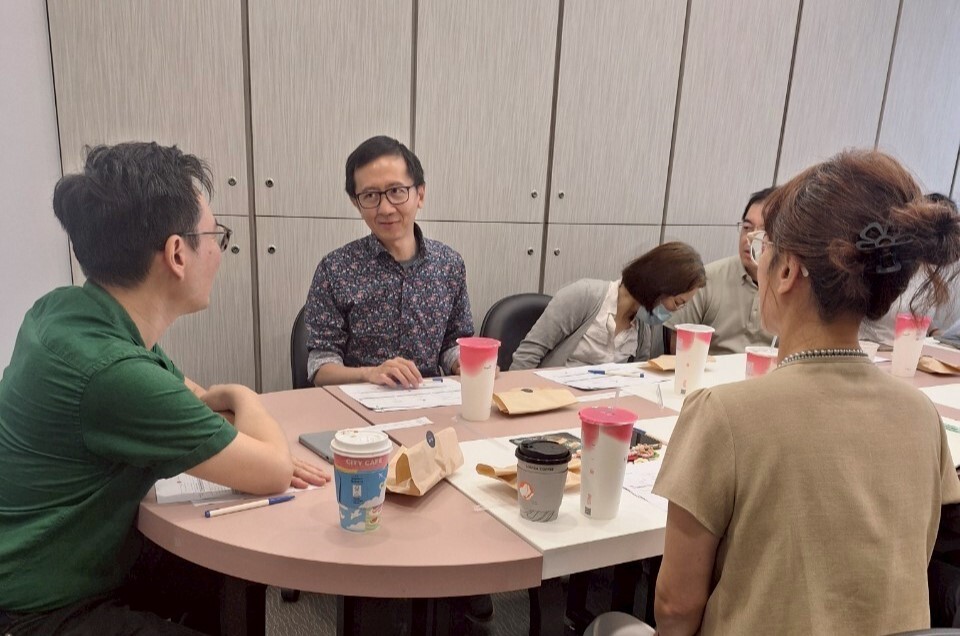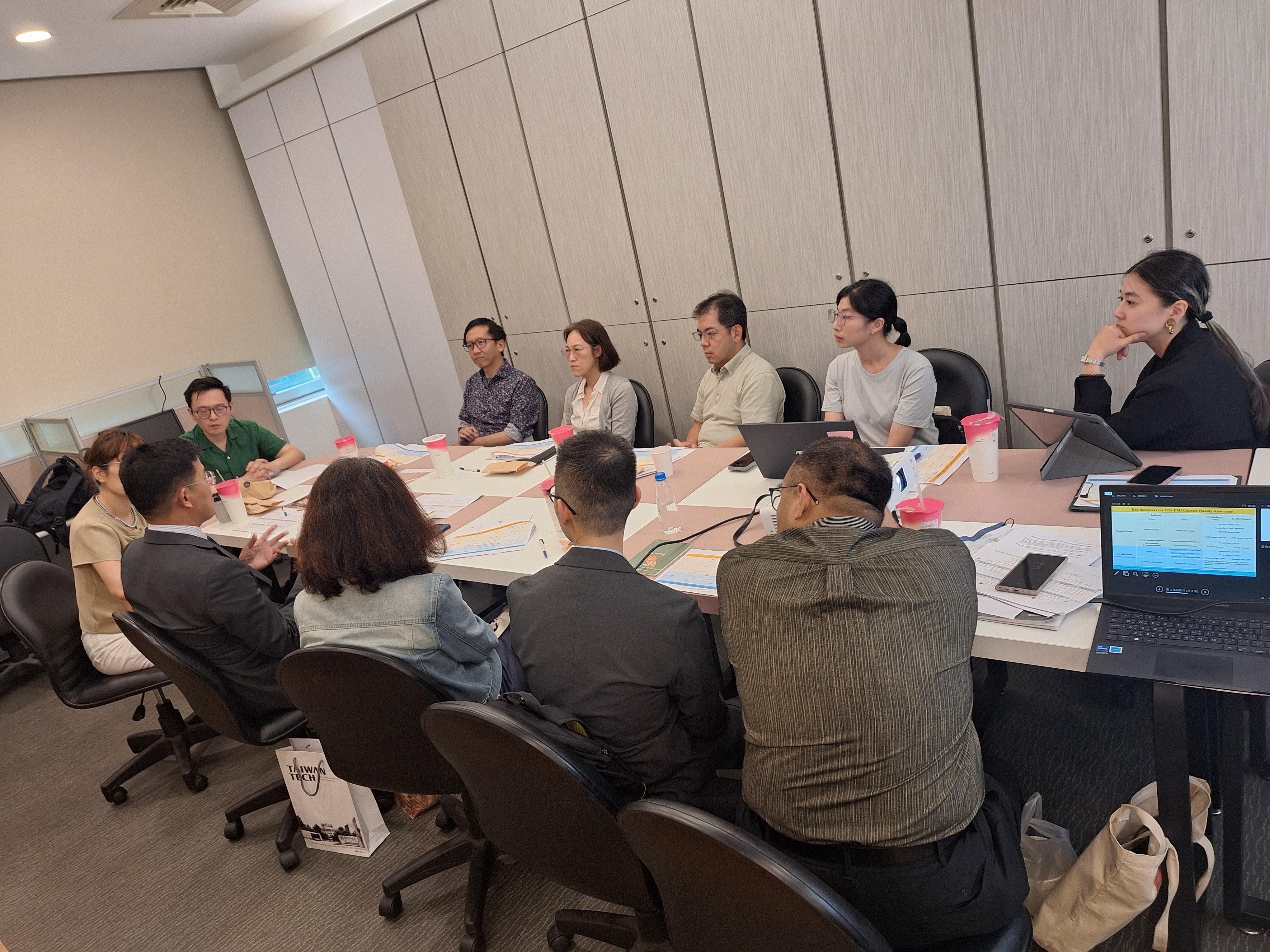Taiwan Tech enhances EMI Quality with Global Expert Insights.
In recent years, Taiwan Tech has actively promoted EMI (English as a Medium of Instruction) courses, evolving from a focus on quantity to an emphasis on quality. The university now offers over 900 EMI courses annually, demonstrating its strong commitment to bilingual education. To ensure course quality and enhance teaching effectiveness, Taiwan Tech is proactively developing a comprehensive quality assurance mechanism and has invited international experts to help establish a model that reflects both the university’s unique characteristics and global standards.

The Office of Bilingual Education Initiatives at Taiwan Tech invited three scholars to serve as advisors for its EMI quality assurance mechanism: Professor Becky H. Huang (4th from right) from the Department of Teaching and Learning at The Ohio State University, Professor Ivan Stefano (5th from right), Director of the ESL Program at Ohio State’s Center for Languages, Literatures and Cultures, and Professor Kongji Qin (4th from left) from New York University.
Hosted by the Office of Bilingual Education Initiatives at Taiwan Tech, the Expert Consultation Meeting on EMI Course Quality Assurance Mechanism brought together three distinguished scholars from the United States with extensive experience in language policy and bilingual education. The invited experts included Professor Becky H. Huang from the Department of Teaching and Learning at The Ohio State University, Professor Ivan Stefano, Director of the ESL Program at Ohio State’s Center for Languages, Literatures and Cultures, and Professor Kongji Qin from New York University. The scholars not only shared best practices from various universities but also offered constructive recommendations for implementing higher education strategies under Taiwan's 2030 Bilingual Policy.
As the bilingual policy advances, maintaining both course quantity and quality has become a key focus. Dr. Shao-Ting Hung, Executive Director of the Office of Bilingual Education Initiatives, stated that the consultation aimed to present Taiwan Tech’s proposed EMI course quality assurance mechanism. The discussion specifically focused on the rationale and design of key quality indicators for required and elective courses, as well as strategies for achieving effective outcomes. According to Dr. Hung, dialogue with international experts enables Taiwan Tech to refine its framework through diverse professional perspectives.
During the meeting, three postdoctoral researchers from the Office introduced the PDCA Cycle-Based Quality Management Framework, outlining the EMI quality assurance process through the Plan–Do–Check–Act model. The presentation highlighted the university’s comprehensive approach to course design, implementation, evaluation, and feedback - underscoring Taiwan Tech’s commitment to both excellence and accountability in EMI education.

Prof. Becky H. Huang and Prof. Ivan Stefano shared how The Ohio State University integrates classroom observation into its research team structure.
In addition, the team has developed a set of well-defined quality assessment tools, including a questionnaire designed to evaluate EMI-related competencies. This instrument allows both teachers and students to reflect on and provide feedback regarding teaching and learning effectiveness from different perspectives. The student version focuses on self-assessment of learning competencies and skills, while the teacher version evaluates how well the course design supports student development. These complementary tools offer a basis for comparison and provide empirical evidence for ongoing course quality monitoring.
Regarding the implementation of classroom observation mechanisms, Prof. Kongji Qin shared that New York University has institutionalized classroom observation as part of new faculty training and promotion evaluations - an effective strategy for continuously enhancing teaching quality. Meanwhile, Prof. Becky H. Huang and Prof. Ivan Stefano from The Ohio State University emphasized the integration of classroom observation into the university’s internal research teams. This approach supports a sustainable system for teaching observation and feedback embedded within university operations, enabling continuous monitoring and improvement. All three experts agreed that classroom observation should not be a one-way evaluation but a developmental process grounded in mutual respect, professional dialogue, and collaboration.

Prof. Ivan Stefano (second from left) provided a detailed explanation of the classroom observation mechanism at The Ohio State University.
Beyond discussions on curriculum and instruction, the invited experts also offered valuable insights and recommendations regarding students’ language attitudes and learning strategies. For instance, they emphasized the importance of fostering students’ understanding of Global Englishes and World Englishes. The core of effective language use, they noted, lies not in mastering a particular accent, but in achieving intelligibility in communication. Therefore, universities should help students build the capacity to navigate diverse accents and engage in intercultural communication through workshops, orientation programs, or myth-busting activities - ultimately enhancing their global competitiveness and confidence.
The expert consultation generated a wide range of recommendations spanning faculty professional development, student learning strategies, instructional assessment design, and institutional frameworks. Moving forward, the Office of Bilingual Education Initiatives will consolidate these insights into the development of a university-level EMI course quality assurance mechanism, aiming to construct a more systematic and sustainable blueprint for bilingual education at Taiwan Tech.

Prof. Kongji Qin (front row, second from left) shared how New York University has institutionalized faculty onboarding and management practices to ensure teaching quality.
Date of Release: July 8, 2025
